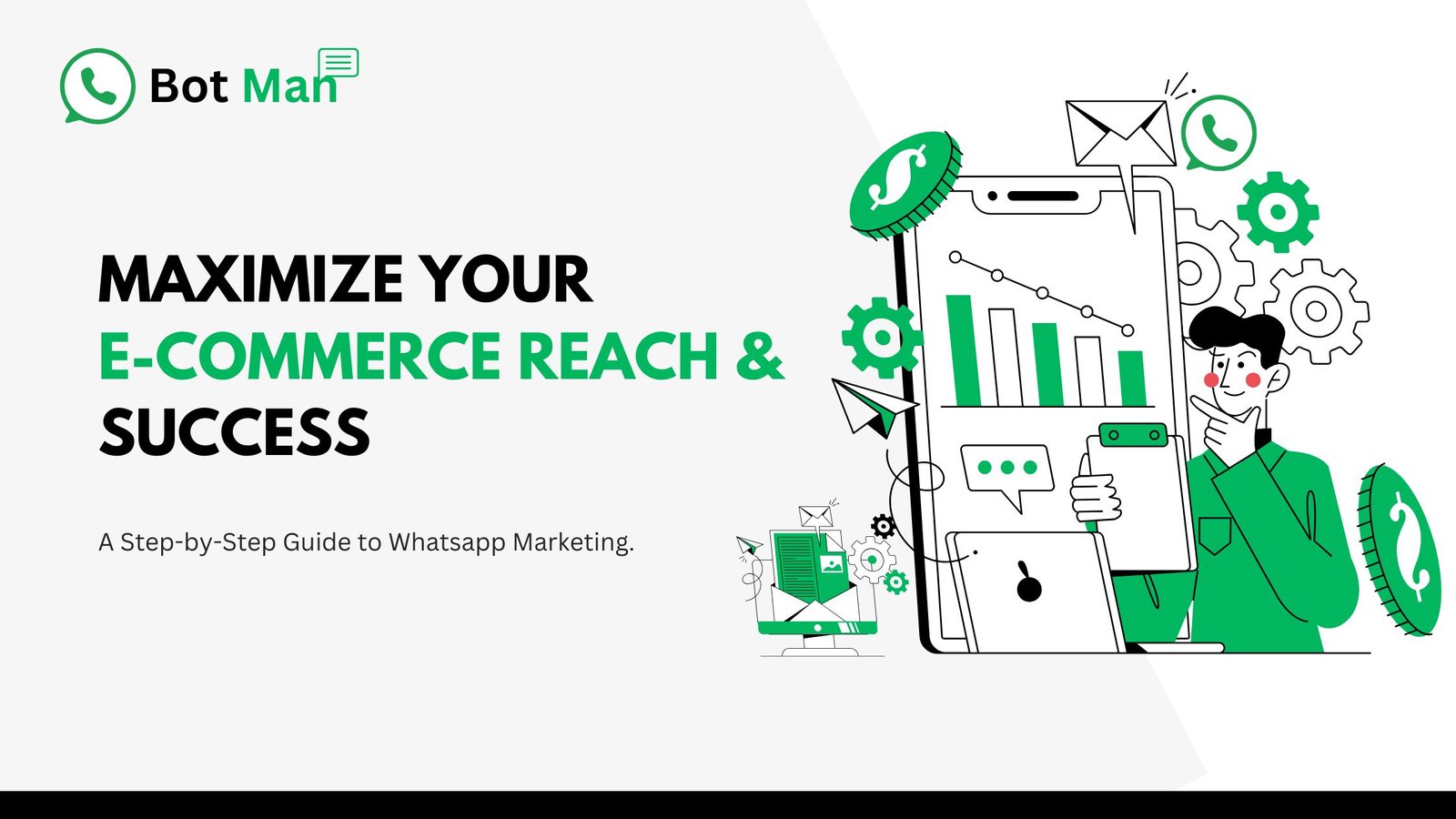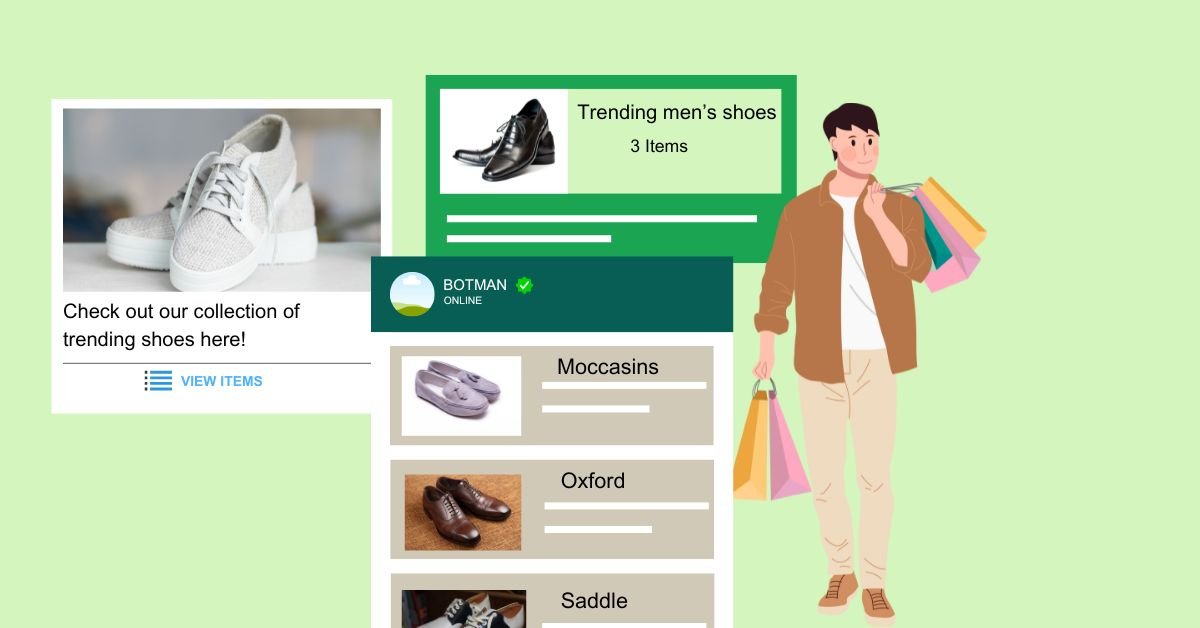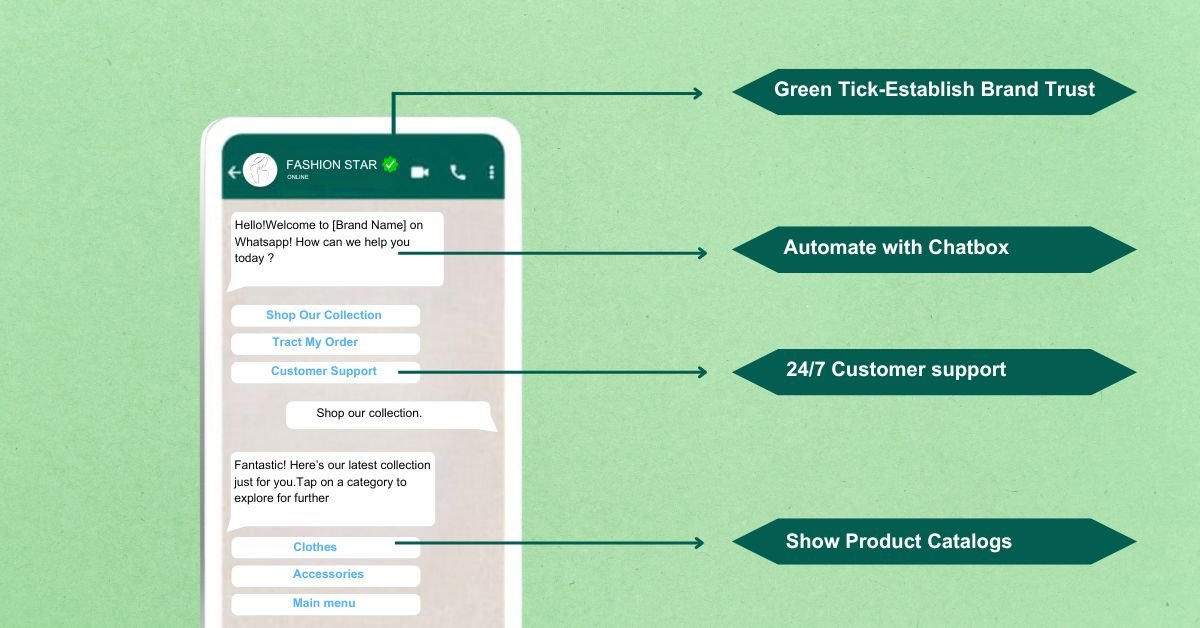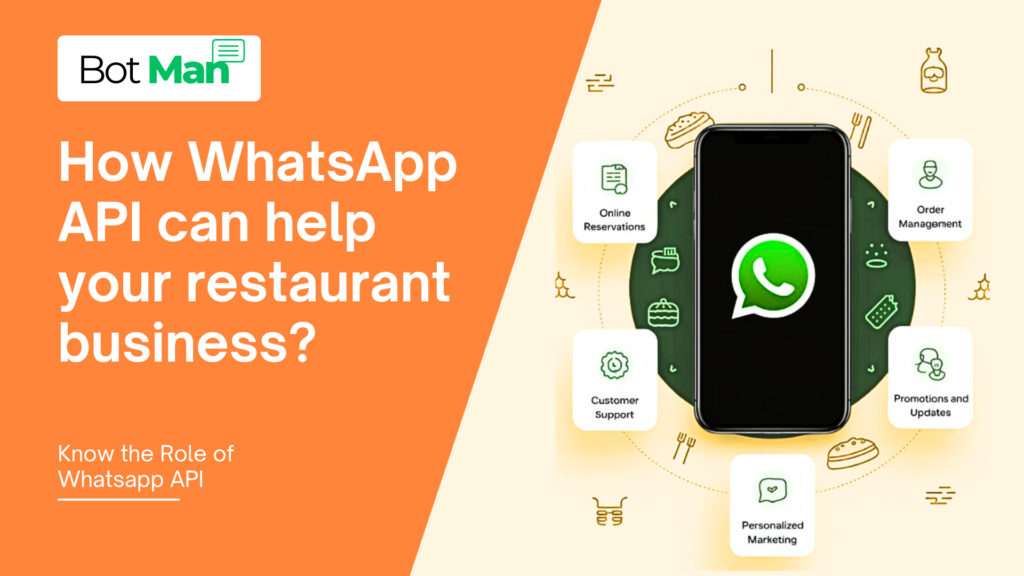How to unlock the E-commerce Growth with WhatsApp Marketing

Industry Insights: The E-commerce Challenge
The e-commerce landscape is experiencing unprecedented growth, with projections indicating a market value exceeding $7.9 trillion by 2027. However, significant challenges persist:
- Only 2.86% of e-commerce visitors convert into customers
- 47% of online shoppers abandon their shopping carts
- Customer engagement and retention remain major hurdles
WhatsApp Marketing: A Game-Changing Solution for E-commerce
WhatsApp marketing for e-commerce has emerged as a powerful solution, offering remarkable engagement metrics:
- 98% open rates for messages
- 45-60% click-through rates
- Direct, personalized customer communication
Key Benefits of WhatsApp Marketing for E-commerce
With e-commerce continuing to evolve at a rapid pace, businesses are turning to personalized and instant communication channels to engage customers, drive conversions, and ultimately enhance their bottom lines. One of the standout channels for achieving these goals is WhatsApp Marketing for E-commerce, which leverages the popular messaging app to reach customers in a more interactive, engaging, and efficient way.
Here’s a closer look at why WhatsApp Marketing is proving invaluable for e-commerce brands and how you can implement it to grow your business.

1. Cart Abandonment Recovery
Cart abandonment is a common issue in e-commerce, with potential customers often leaving items behind due to distractions or indecision. WhatsApp helps address this issue through timely, personalized reminders.
- Automated Reminder Messages: WhatsApp can automatically send reminders for abandoned carts, prompting customers to return and complete their purchase. With reminders sent directly to their phones, customers are less likely to forget or ignore the cart.
- Personalized Discount Offers: Offering an exclusive discount on abandoned items via WhatsApp can motivate hesitant shoppers to convert.
- Real-Time Customer Support: Many customers abandon carts due to unanswered questions. WhatsApp’s direct messaging enables real-time responses, clarifying any concerns and building trust.
- Proven Recovery Rates: Studies show that businesses using WhatsApp to tackle abandoned carts achieve recovery rates of 35-60%, far surpassing other channels.
2. Enhanced Customer Engagement
E-commerce thrives on engagement, and WhatsApp’s interactive features can make customers feel more connected to the brand.
- Interactive Product Catalogs: WhatsApp allows businesses to showcase products in an appealing, easy-to-navigate format. This functionality lets customers explore items, making shopping more engaging.
- Real-Time Order Updates: Customers appreciate staying in the loop. From confirmation to shipping and delivery updates, WhatsApp can provide seamless notifications to reassure customers.
- Instant Query Resolution: Queries can be answered on the spot through WhatsApp, reducing waiting times and enhancing satisfaction.
- Personalized Recommendations: By leveraging data from past purchases or preferences, businesses can share tailored product suggestions, making the shopping experience feel more personal.
3. Streamlined Sales Process
One of the biggest advantages of WhatsApp Marketing for E-commerce is its ability to create a fast, frictionless purchasing experience.
- Direct Payment Integration: WhatsApp enables in-app payments, allowing customers to complete transactions without needing to leave the chat.
- Rich Media Product Showcases: Share photos, videos, and even 3D product previews to give customers a comprehensive view of the item.
- One-Click Purchasing: Make it easy for customers to purchase with just a click, reducing the steps to checkout.
- Automated Checkout Process: Guide customers through the entire purchase journey in an automated, user-friendly way that encourages completion.
4. Improved Customer Support
Offering top-notch customer support is vital for e-commerce success, and WhatsApp allows for a responsive, personalized service approach.
- 24/7 Chatbot Assistance: Automated chatbots ensure customers get help anytime, even outside regular business hours.
- Quick Response Templates: Speed up response times with templated replies to common questions.
- Multi-Agent Support System: For larger businesses, WhatsApp enables multiple agents to handle queries, ensuring no message goes unanswered.
- Seamless Issue Resolution: Address complaints or issues promptly, minimizing frustration and building loyalty.
Implementation Strategies for WhatsApp Marketing in E-commerce
To make the most of WhatsApp Marketing, it’s essential to implement strategic approaches that cater to each stage of the customer journey.
1. Automated Marketing Campaigns
Automate specific marketing messages to keep customers engaged and informed.
- Welcome Messages: Send a friendly greeting to new subscribers or customers, making them feel valued from the start.
- Promotional Broadcasts: Use WhatsApp’s broadcast feature to send tailored promotions to segmented lists.
- Seasonal Offers: Target customers with holiday or seasonal discounts, increasing engagement during peak shopping periods.
- Loyalty Programs: Encourage repeat purchases by informing customers about loyalty points or exclusive member offers.
2. Enhancing Customer Experience
Create a seamless experience by keeping customers informed at each step of their purchase.
- Order Confirmation and Updates: Confirm orders and notify customers about shipment status and delivery timeframes.
- Post-Purchase Follow-Up: Once the sale is complete, follow up with customers to ensure satisfaction and offer assistance if needed. This step can also encourage positive reviews.
3. Lead Generation and Conversion
Attract new customers and guide them through the purchase process.
- Click-to-WhatsApp Ads: Run ads that drive traffic directly to WhatsApp, encouraging instant conversations with leads.
- Website Integration: Add a WhatsApp chat option on your website for instant connection with potential buyers.
- Custom QR Codes: Use QR codes that open directly into WhatsApp, making it simple for offline shoppers to reach you digitally.
- Landing Page Optimization: Create WhatsApp-optimized landing pages that simplify the conversion process.
Success Metrics and ROI for WhatsApp Marketing in E-commerce

For businesses investing in WhatsApp Marketing, tracking the right metrics is key to measuring success.
- Increased Conversion Rates: WhatsApp conversions are typically 2-3 times higher than email marketing, making it a valuable tool for boosting sales.
- Reduced Customer Acquisition Costs: Compared to traditional channels, WhatsApp can lower the cost of acquiring new customers by providing a more direct path to engagement.
- Higher Customer Lifetime Value (CLV): By fostering ongoing engagement, WhatsApp can help retain customers and increase CLV.
- Enhanced Customer Satisfaction Scores: Instant support and timely updates lead to happier customers who are more likely to become loyal brand advocates.
Best Practices for Implementing WhatsApp Marketing for E-commerce
To fully realise the potential of WhatsApp, here are a few best practices:
Message Optimization
Ensure each message sent is impactful and well-timed.
- Clear Call-to-Actions (CTAs): Guide customers on the next steps, whether it’s completing a purchase or checking out a product.
- Personalised Content: Use customer data to make each message feel unique and relevant.
- Optimal Timing: Avoid overwhelming customers by timing messages during business hours or peak shopping times.
- Rich Media Integration: Use videos, images, or GIFs to make messages visually engaging.
Customer Journey Mapping
Design a flow that matches your customers’ needs at every stage.
- Targeted Messaging: Send messages based on browsing history, preferences, and past purchases.
- Behavioural Triggers: Set up automated responses based on customer actions like abandoned carts or viewed products.
- Engagement Tracking and Analytics: Monitor performance and engagement rates to refine your strategy and deliver better results.
Conclusion
WhatsApp marketing for e-commerce represents a transformative solution for businesses looking to overcome traditional e-commerce challenges. With its exceptional engagement rates and versatile features, WhatsApp provides a direct channel to connect with customers, recover lost sales, and build lasting relationships.
The future of e-commerce lies in personalised, instant communication, and WhatsApp marketing is leading this revolution. Businesses that embrace this channel early will gain a significant competitive advantage in the evolving digital marketplace.



